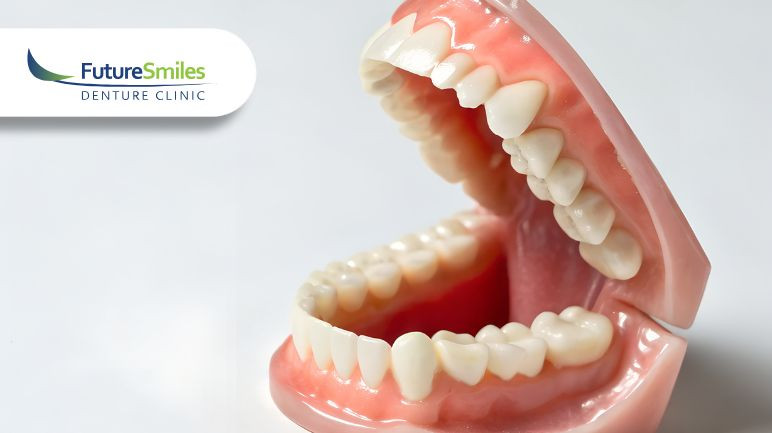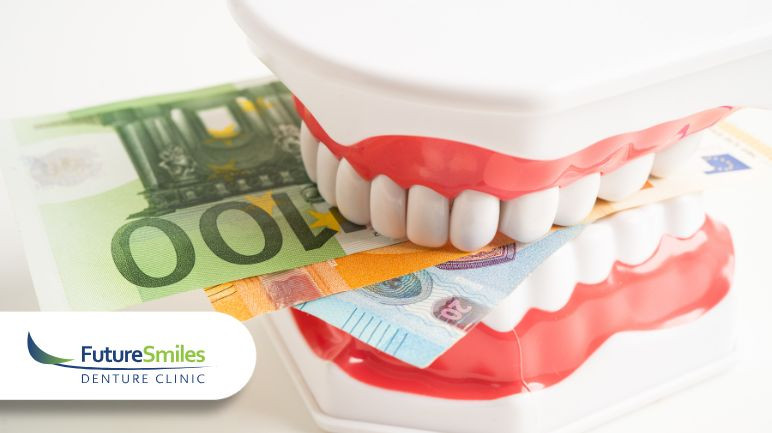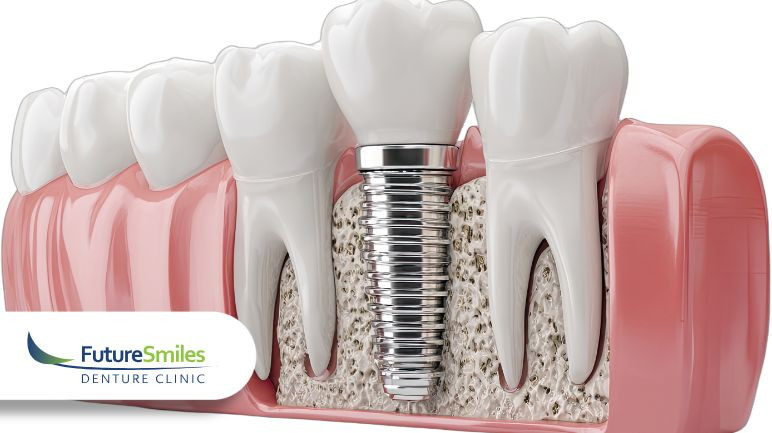Are you considering a dental implant procedure? Here’s everything you need to know about the material choices denturists have for this innovative tooth replacement option.
Traditionally, if a patient was missing one or more teeth, the most commonly used method by denturists were full or partial dentures. However, thanks to the incredible advancements in technologies and techniques, dental implants offer a great alternative with many benefits such as:
- better comfort and fit
- no speech problems
- longer lifespan
- better durability (they never slip out of place)
- no diet restrictions
What You Need to Know About Materials Used For Dental Implants
Upon visiting your local denture clinic, you may have been told that a dental implant is one of the best options for replacing missing teeth. While many patients are already familiar with the dental procedure, few actually understand what kind of materials are used in creating such a natural-looking tooth.
1. The Crown
The crown (cap) is made to look like a natural tooth and attached to your implant by the denturist, filling the space in your mouth left by a missing tooth. The two preferred materials for this are either ceramic or porcelain.
Porcelain Crown
Porcelain is the most preferred material by denturists for a range of dental treatments including dental crowns, bridges, and other dental work. This is because it has many benefits:
- It’s colour and texture closely resembles that of a real tooth.
- It’s stain-resistant.
- They can be shaped and moulded to exact measurements for a more comfortable fit.
- Porcelain crowns can now be fitted in just one visit to your denture clinic.
Ceramic Crown
While ceramic can also blend in very naturally with your other teeth, it’s not a material that denturists recommend for everyone.
Who is it best for? Ceramic is often used for patients who have very little spaces between their teeth. This is because ceramic is thinner than porcelain, making it appear lighter in shade.
2. The Roots
When it comes to the root implant, there are two main types of materials that your denturist might suggest: zirconium and titanium. While either option is an excellent option is the direction of improving your overall health, knowing the difference between them is still important.
Zirconium
Zirconium is considered a ceramic and implants made from this material are metal-free. It is ideally suited for patients with a titanium allergy but can benefit all patients with its many advantages:
- It looks more like a natural tooth root.
- It's non-allergenic.
- No dark color of metal shows through your gums.
- Its restorative margin is at gum level, making cleaning easier to manage.
However, it’s important to note that zirconium implants are quite limited in their application and unsuitable for many situations. Their newness on the market also means that their long-term success rate is unknown.
Titanium
Titanium is the most preferred material used by denturists when performing a dental implant. This is because they are much more versatile and can last for many years. Some other benefits of titanium implants include:
- When taken care of, it can last a lifetime.
- It allows your denturist much more flexibility, even if a patient has minimum bone mass.
- It has low thermal conductivity which prevents irritation or temperature shocks with hot or cold foods.
- It is a lightweight material.
Call Our Calgary Denture Specialists Today
At our Macleod-area Calgary denture clinic, our skilled and experienced denturists offer a wide range of tooth replacement options including traditional full/ flexible partials, and implant-supported dentures to suit all your individual requirements and ensure the health of your smile is restored as soon as possible.
To find out more about which type of dental implant material is right for you, contact our Calgary denture clinic at (403) 475-0016 or fill in our online contact form.






